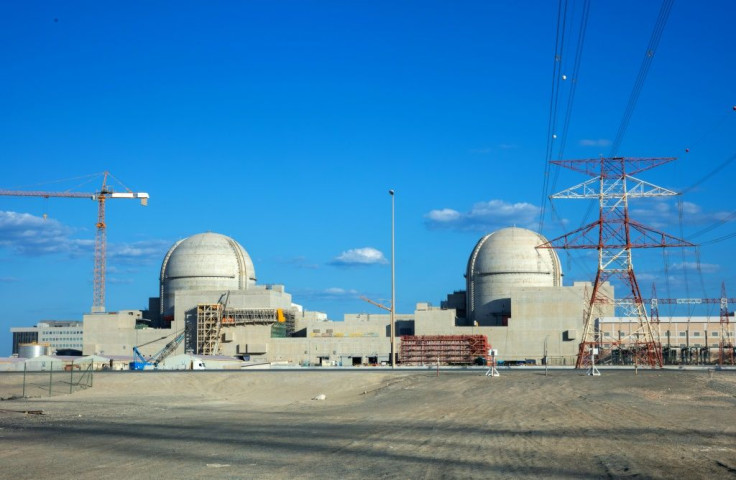UAE Issues Licence For First Arab Nuclear Power Plant

The United Arab Emirates said Monday it has issued a licence for a reactor at its Barakah nuclear power plant, the first in the Arab world, hailing it as a "new chapter".
The UAE has substantial energy reserves, but with a power-hungry population of 10 million it has made huge investments in developing alternative power sources including solar.
"Today marks a new chapter in our journey for the development of peaceful nuclear energy with the issuing of the operating license for the first Barakah plant," Abu Dhabi Crown Prince Mohammed bin Zayed Al-Nahyan said in a tweet.
"As we prepare for the next 50 years to safeguard our needs, our biggest strength is national talent."
The Barakah plant, located on the Gulf coast west of the capital Abu Dhabi, had been due to come online in late 2017 but faced a number of delays that officials attributed to safety and regulatory requirements.
The national nuclear regulator has now given the green light to the first of four reactors at the plant, Hamad al-Kaabi, the UAE representative to the International Atomic Energy Agency (IAEA), told a press conference.
Abu Dhabi authorities said in January that the plant would start operating within a few months. No new date was given on Monday but Kaabi indicated it would happen soon.
"The full operation of Barakah plant in the near future will contribute to the UAE's efforts for development and sustainability," he said, adding that the operator would "undertake a period of commissioning to prepare for commercial operation".
The plant is a regional first -- Saudi Arabia, the world's top oil exporter, has said it plans to build up to 16 nuclear reactors, but the project has yet to materialise.
It is being built by a consortium led by the Korea Electric Power Corporation at a cost of some $24.4 billion.
When fully operational, the four reactors have the capacity to generate 5,600 megawatts of electricity, around 25 percent of the nation's needs. The remaining three reactors are almost ready for operation.
As well as generating competitively priced electricity, the UAE also hopes the nuclear plant will elevate its status as a key regional player, building on its success in establishing itself as a centre for tourism, banking and services.
"This is part of the UAE's drive to diversify its energy economy, reduce dependence on fossil fuels, and project its image as a regional leader in science and technology," one Gulf analyst told AFP.
Other headline initiatives include a homegrown space programme, which saw the first Emirati astronaut sent into space last year, and plans to launch a probe to Mars.
The Barakah plant is situated on the Emirates coast, separated from Iran by the troubled Gulf waters. It is just 50 kilometres (30 miles) from the border of Saudi Arabia, and is closer to the Qatari capital Doha than it is to Abu Dhabi.
Amid a tense confrontation between Iran and the United States over Tehran's nuclear programme, the UAE has said it will not be developing an uranium enrichment programme or nuclear reprocessing technologies.
But relations between Iran and the UAE, a staunch US ally, have deteriorated as Washington pursues a "maximum pressure" policy against Tehran and accuses it of attacking oil tankers in Gulf waters.
Energy giant Saudi Aramco was the target of a missile and drone attack in September that knocked out half of its production. The strike was claimed by Yemen's Iran-backed Huthi rebels but Washington accused Tehran of carrying it out.
"The 2019 attack on Aramco highlighted the vulnerability of the Gulf's energy infrastructure to external attacks," said the Gulf analyst, who declined to be named due to the sensitivity of the issue.
"The heightened pitch of regional tensions between Iran on the one hand, and the US and its allies on the other, increases the vulnerability of new energy infrastructure to the possibility of such attacks."
The UAE has repeatedly said its nuclear ambitions are for "peaceful purposes" and moved to dispel any concerns over safety.
It says it has welcomed more than 40 international missions and reviews from the IAEA and World Association of Nuclear Operators (WANO) since 2010, as proof of its commitment to transparency.
Residents living within a 50-kilometre (30-mile) radius of the Barakah plant have been instructed on emergency procedures in case of an accident.
© Copyright AFP 2024. All rights reserved.




















